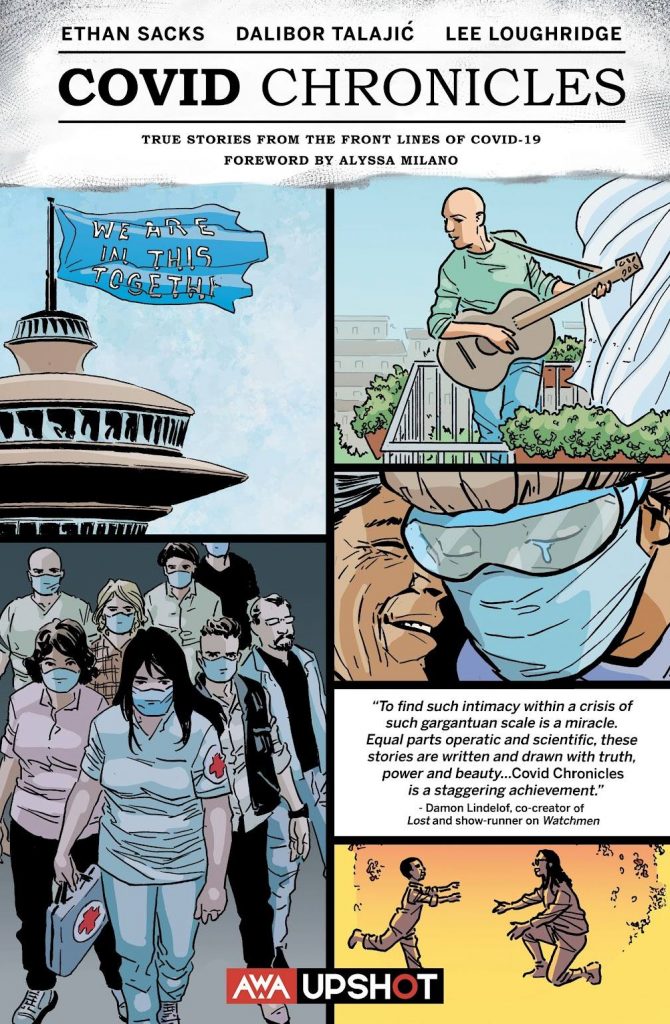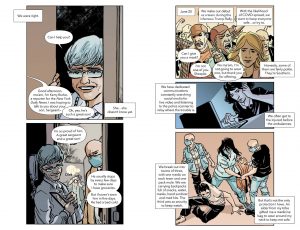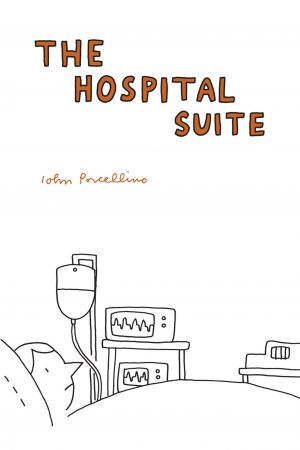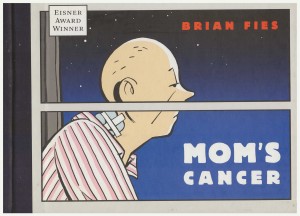Review by Frank Plowright
Incredibly, a year after Covid Chronicles was published, it’s distressingly easy to find people online who still believe a disease that’s killed millions around the world is a hoax. A foreword by Alyssa Milano details her own distressing experience, but in a country with the highest per capita death toll in the world, at least she’s still around to tell people. She notes Covid Chronicles isn’t a book to be enjoyed, which it isn’t, but it is an important account of day to day experience of both those who Covid-19 struck down and those involved with the research and treatment.
Ethan Sacks combines careers in journalism and comics writing, and has taken ten personal testimonies and broken them down for Dalibor Talajić to illustrate. Every story is emotionally draining, but the starting point of 23 year old nurse Jessica perhaps more so for adding direct fear to illness and observation. She sits in her car for fifteen minutes before every shift gathering courage, and while seeing others die every day, lives in fear that inadequate personal protective equipment could mean she transfers Covid to her 64 year old mother.
Starting in early March 2020, the stories are presented chronologically, concluding in the summer, by which time there’s a far greater awareness of what Covid is and what it can do. Sacks selects well and globally, the variety encompassing a Native American medic in Oklahoma working at protests, an Italian tenor who serenades his neighbourhood, and a Canadian medic working in a testing facility and having to follow strict rules about who’s eligible for testing. Grim, sad moments are plentiful. A respiratory specialist talks about the fear he could be seeing his wife for the final time, a journalist realises the woman he’s interviewing doesn’t know her son is dead, and a man visiting his parents can’t leave Wuhan for months. The most frustrating is a medical research team who can clearly see what’s coming, but having to operate under restrictions imposed by US health authorities during January and February 2020.
Every single recollection is engaging, touching and humane, whether the central mood is uplifting or desperate. The care and commitment to honesty is reiterated by there being absolutely no flashiness about Talajić’s art, but loyalty to the idea of realism and communication. His environments are meticulously constructed, be they a hospital treatment bed or the locations where a Mexican doctor works for Médicins Sans Frontières.
A deeply moving series of testaments is completed by process pages explaining the journey from script to page, and an afterword from Sacks.





